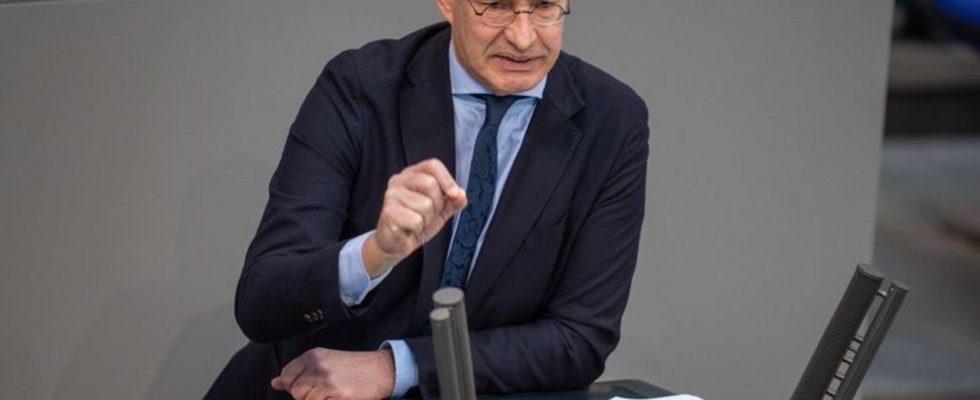Economic policy
Middelberg: “Investment boost” possible without debt
“The German economy is limping and urgently needs relief from energy costs or corporate taxes,” says Union parliamentary group vice-president Mathias Middelberg. photo
© Michael Kappeler/dpa
How can the economy be stimulated? The federal government is looking for a solution. A proposal comes from the Union.
Union faction vice-president Mathias Middelberg believes a growth package without new debt is possible. To counter-finance this, the CDU politician suggests savings in state funding programs and personnel in the federal ministries, for example.
The CDU politician told the German Press Agency that significant funds for an “investment boost” for Germany could be mobilized even without debt.
“The German economy is limping and urgently needs relief from energy costs or corporate taxes in order to become attractive again as an investment location.” The traffic light must also implement the much-vaunted turning point in the household. “That would require sustained savings and reallocations.”
Savings potential from Middelberg’s perspective
The federal government currently operates around 400 funding programs, said Middelberg. “Nobody can still overlook this jungle of funding. The federal funding programs must therefore be strictly evaluated and reduced in number and scope. This could save many billions.
He also suggests that large programs that are actually country matters be canceled. As an example, he cited the new “Starting Opportunities” program for schools in difficult situations with two billion euros per year – of which the federal government will cover one billion.
From the CDU politician’s point of view, significant savings should also be made in federal ministries. The traffic light has hired a record number of new top officials in its ministries. The federal ministries now have more than 30,000 employees. In 2012, 18,500 would have been enough. A “consistent reduction” in staff in the federal ministries by 20 percent would save 400 million euros each year in the medium term.
Furthermore, a lot of savings could be made by “consistently limiting” asylum migration. In addition, significantly more people could be brought into work through better work incentives. According to Middelberg, 100,000 more citizens’ benefit recipients would bring up to three billion in relief to the federal budget through savings on citizens’ money and additional income from taxes and social security contributions.
Traffic light is struggling for a new growth package
The Bundestag and Bundesrat recently passed a growth package with, among other things, tax improvements for companies – but the relief volume shrank noticeably during a mediation process. Federal Economics Minister Robert Habeck (Greens) said on Wednesday: “Further growth impulses are necessary, and we are working on that in the government.”
He could present a package together with Finance Minister Christian Lindner (FDP) by the summer – but the question is how comprehensive this is and whether the traffic light parties will find a consensus. Chancellor Olaf Scholz (SPD) had made it clear in view of FDP demands that he did not want to stimulate the economy at the expense of the welfare state. Middelberg said that Habeck wanted to finance everything with new debt, Lindner rejected that, but so far had not been able to explain where the funds would come from.

